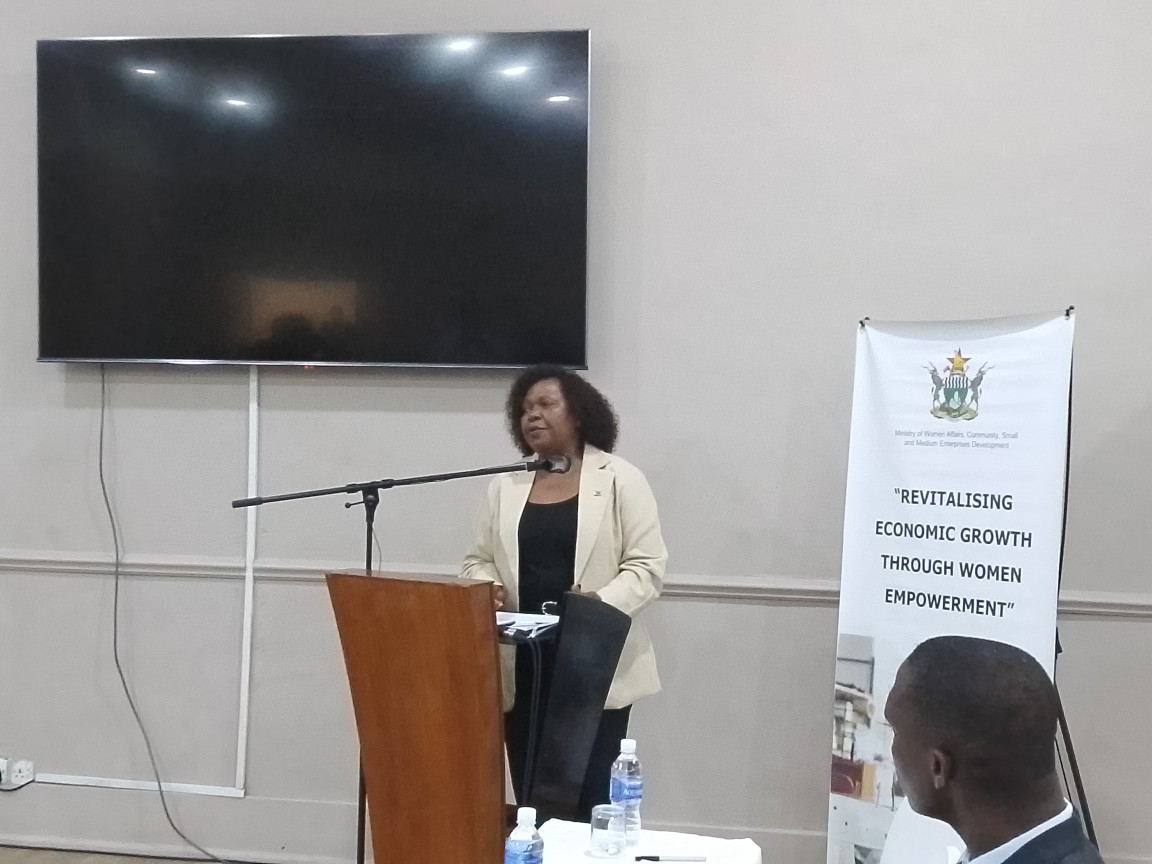|
Getting your Trinity Audio player ready…
|
The government has been urged to take into consideration the views of Micro, Small, and Medium Enterprises (MSMEs) regards the recently introduced 2024 Revenue Measures announced by the Ministry of Finance, Economic Development and Investment Promotion.
This came to the fore at a workshop in Harare that was presided over by Dr. Mavis Sibanda, the Permanent Secretary for the Ministry of Women Affairs, Community, Small and Medium Enterprises Development yesterday.
“It gives me great pleasure to welcome you to this inaugural workshop aimed at unpacking the 2024 Revenue Measures announced by the Ministry of Finance, Economic Development, and Investment Promotion and their implications to Micro, Small and Medium Enterprises (MSMEs). I would like to thank our co-hosts the Ministry of Finance and Economic Development and ZIMRA, for the generous support of the workshop.
“The MSMEs occupy a strategic position in the achievement of Vision 2030 as such the capacitation of this sector is very critical to achieve Vision aspirations,” Dr. Sibanda said.
Recent statistics as highlighted in the 2021 MSME survey and 2022 Finscope survey show phenomenal growth of the sector with a contribution of more than USD8.6 billion to the Gross Domestic Product (GDP). The 2021 Zimstat survey further highlights that 96.5% of the sector is informal.
“The integration of this sector into the mainstream economy is therefore fundamental not only to the sector’s growth but to the economy at large. Following the pronouncement of the 2024 revenue measures, the Ministry has received reports from the sector on the disruption of supply chains due to information asymmetry. Most are not clear on the requirements of the new revenue measures and the implications to business operations. Some of the measures entail local traders wishing to procure goods from manufacturers to be licenced as well as to have tax compliance certificates,” Dr. Sibanda added.
Commenting on the revenue measures, Wisbonn Malaya, the Secretary-General of the Zimbabwe Chamber of Informal Economy Associations (ZCIEA) said there is a serious gap that needs to be addressed by the government to harmoniously formalize the informal economy activities.
“Also key to note is that the formalization of the informal economy is not in taxation and registration only. There are several factors to be considered in advance and fallback measures to be put in place,” Malaya said.
He said there are several effects of the introduced tax system. He said when food prices increase, transport, fuel, and basic goods like bread increase. Malaya said the tax system promotes illegality and expansion of criminalizing the Informal Economy.
“These taxes deepen poverty levels of vulnerable people and take away the entrepreneurship culture that has sustained the Zimbabwean economy. We bemoan the continuous application of anti-poor policies since early 2002 to date. High taxes further fuel corruption in the informal economy and promote more violence and harassment in the informal economy through law enforcement. Youth livelihood destruction results in more drug abuse. We have also witnessed the continued fragmentation of Ministerial operations on informal economy management.”
Malaya urged the government to have a culture to interact with the informal economy players and tap solutions from their ideas. E.g. informal economy transitioning Indaba with Ministry of Finance etc (to hear players’ voices so as not to leave anyone behind).
“There is a need to review the proposed tax system and make sure it is attractive to the informal economy players e,g (5 million people paying tax of 5USD per month is USD25 million per month. The government should make use of organized associations to reach out to the target group with a productive and sustainable tax framework that unpacks the benefits of the contributor. (health and attractive pension schemes).
“The Ministry of Finance must catergorise the taxation system to protect vulnerable traders who are trading as a survivalist strategy. It should adopt the formalization strategy that is in the hands of the Ministry of Labour. (Leave no one behind). The government should open up the Tripartite Negotiation Forum to be a tripartite plus so that informal economy issues have a platform for discussion with opportunities for policy formulation,” he added.
Agness Magunje, the Director of the Federation of Micro and Small Businesses in Zimbabwe said the tax regime does not permit the creation of the middle-income economy by 2030.
“It destroys and complicates compliance for micro businesses for tax payment. The high taxes will push the costs of goods and commodities, thereby growing the poverty levels. There will be a huge increase in the growth of the informal sector, accompanied by more economic inequalities. ZIMRA should listen to the SMES and the Ministry of Finance must be flexible to apply homegrown methods of taxation to have compliance,” Magunje said.
